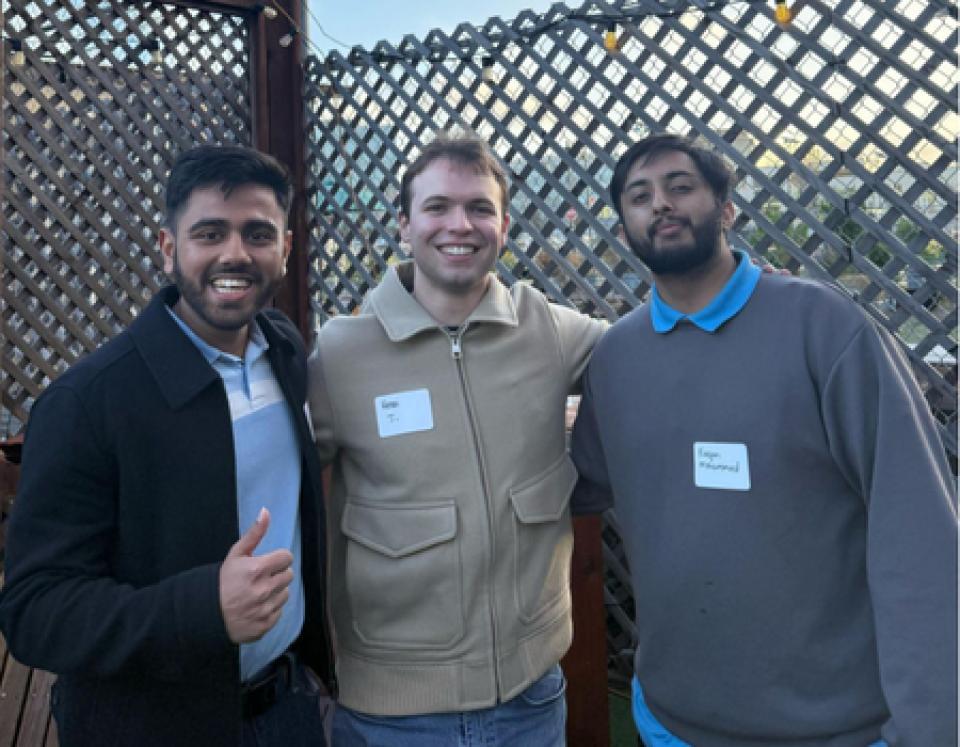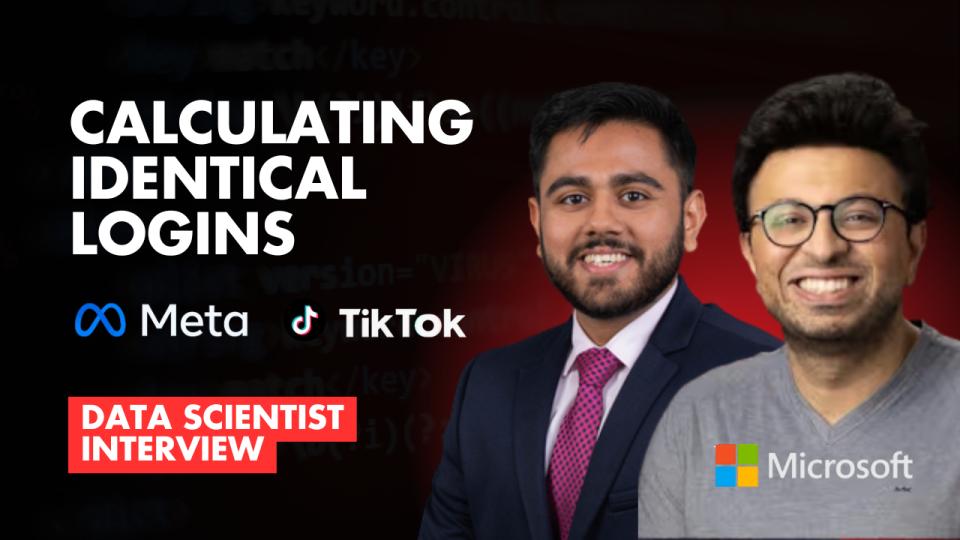The Internship That Showed Me the Future of Analytics
From A/B testing to AI tools at Interview Query

When I joined the UC Davis Master of Science in Business Analytics program, I came in with a mix of consulting experience at KPMG and a strong curiosity about how analytics could drive real business decisions.
I knew I wanted to build a career at the intersection of data, strategy and technology. What I didn’t realize at the time was how transformative the program would be in helping me move from simply working with data to shaping end-to-end analytics solutions.
Hands-On Analytics + Business Experience
I chose the UC Davis MSBA because of its strong balance of technical depth and business focus.
- While many programs lean heavily in one direction, UC Davis sets itself apart with a curriculum that combines advanced data science while grounding everything in real business applications.
- The practicum project with corporate partners was another deciding factor. I wanted hands-on experience solving problems that mattered, not just theoretical exercises.
The coursework was both rigorous and practical, including:
- Statistics for analytical rigor and experiment design.
- Big data for managing and analyzing large-scale datasets.
- Product analytics for linking user behavior to growth strategies.
These courses built my technical skillset and also taught me how to connect data to real business outcomes.

MSBA Connections Led to Plum Internship
My internship journey began at a casual happy hour organized by Jay Feng, the founder of Interview Query, which helps you develop your skills and prepare for your interview using real questions from the biggest data companies in data science.
Feng shared that his company was looking for interns to expand content and analytics initiatives. At the same time, I was already familiar with the platform—the UC Davis MSBA program provides all students with premium access to Interview Query to prepare for technical interviews.
The internship opportunity was first mentioned at that happy hour and later circulated by the Career Development team. The combination made perfect sense. I was familiar with the product from the learner’s perspective and was eager to help build it from the inside.
Building Technical Confidence
One of the most valuable aspects of the UC Davis MSBA was how it strengthened my technical foundation while giving me the confidence to apply those skills in real-world settings.
The program didn’t just teach tools—it pushed me to connect theory with practice, building a toolkit I could rely on in internships, projects and beyond.
During the program, I leveled up across the analytics stack:
- Python & R for data cleaning, analysis and modeling.
- SQL for querying structured datasets.
- Tableau & Power BI for creating dashboards and communicating insights.
- Machine learning methods like regression, clustering and gradient boosting.
- Generative AI tools to prototype workflow automation and content creation.
What made these skills stick was applying them to projects, whether predicting citation hotspots from San Francisco Muni data or building end-to-end dashboards that informed decisions.
Putting My Skills to Work
Interview Query was the perfect sandbox to put my MSBA skills into practice. During the summer-long internship, I worked on projects that stretched both my analytics and product thinking:
- A/B Testing Frameworks: Designed experiments for landing pages, pricing pages and CTAs. Using Microsoft Clarity, I analyzed user click paths and signup flows—for example, testing the impact of a pop-up after readers finished an interview guide.
- Generative AI Tools: Built a Mermaid.js flowchart generator that converted natural language into diagrams, making system design prep more interactive and scalable.
- Content Development: Authored interview questions inspired by FAANG interviews (machine learning, system design, SQL and more). I also reviewed and developed interview guides, ensuring they combined technical rigor with storytelling for better learner outcomes.
- Impact Generator Pipeline: Most recently, I started building a pipeline to migrate SEO and relaunch impact tracking from Google Sheets into Tableau dashboards. The system automates KPIs, rolling trends and anomaly detection, giving the team faster and more scalable insights.
- Mock Interview Experience: As part of Interview Query’s product offerings, I was invited to try out a mock interview with Chinmaya Madan, a product manager at Microsoft. The session included a challenging SQL question and a product case study, closely simulating a real interview environment. Not only was it a great learning experience, but the recording will also be shared on Interview Query’s YouTube channel to help other learners see what interview prep looks like in action.
Each of these projects taught me how to take messy, real-world data and turn it into insights or tools that impacted a business immediately. The fast-paced startup environment forced me to iterate quickly and focus on outcomes, not just outputs.
MSBA as Career Launchpad
The UC Davis MSBA was the bridge from my consulting background to a career in analytics and product strategy, giving me the technical foundation, but more importantly, the ability to ask the right business questions and design solutions that create value.
As I move forward, I’m especially excited about how AI and product analytics will continue to transform industries. From personalized learning in edtech to smarter customer acquisition in SaaS, the role of analytics is shifting from descriptive dashboards to predictive and generative solutions.
My internship at Interview Query gave me a front-row seat to this transition, and I can’t wait to be part of the next wave.


